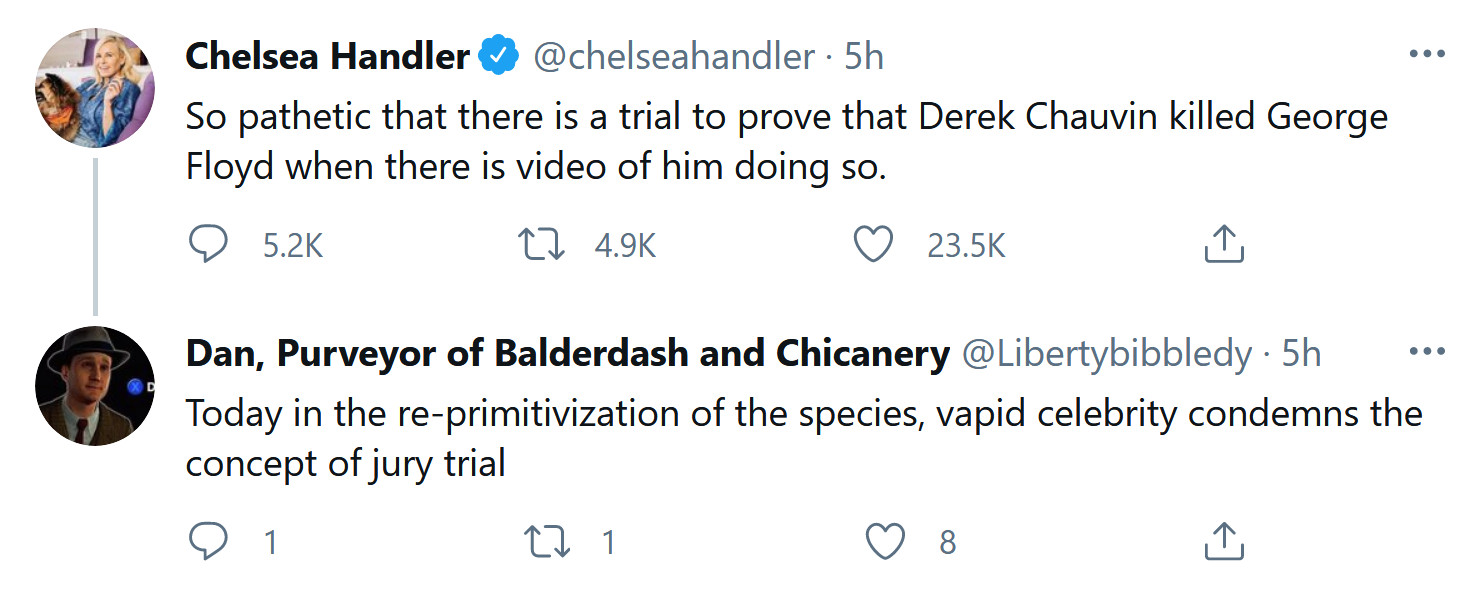ROGER KIMBALL: Justice for Derek Chauvin.
First, the video clip that horrified the world was heavily edited. We see Floyd, pinned to the ground by Chauvin, piteously crying ‘I can’t breathe.’ Conclusion? That he can’t breathe because Chauvin is pressing on his windpipe. But a look at the police bodycam footage shows that Floyd was complaining that he couldn’t breathe before he was restrained by the police. Why? Because, as the FBI’s interview with the local medical examiner on July 8, 2020 revealed, Floyd was suffering from pulmonary edema, i.e., his lungs were full of fluid. And why was that? Partly because of an underlying heart condition, partly because Floyd was full to the gills with fentanyl, a drug known to affect respiration and cause pulmonary edema.
By the way, I say that FBI report ‘revealed’ this extenuating evidence, but it was evidence that the prosecution withheld from public scrutiny until the end of October 2020, by which time Minneapolis and many other cities across the country had been torched by Black Lives Matter rioters demanding ‘justice’ for George Floyd.
Here’s something else. Although Chauvin’s restraint looks brutal, it was actually part of the standard Minneapolis police protocol for dealing with persons exhibiting ‘excited delirium,’ a dangerous, often fatal, condition brought about by too much fentanyl with one’s afternoon tea. According to the medical examiner, Chauvin did not appear to have obstructed Floyd’s airway — Floyd would not have been able to speak if he had — and Floyd did not die from strangulation. Bottom line, George Floyd died from the effects of a self-administered drug overdose, effects that might have been exacerbated by his interactions with the police, i.e., his exertions in resisting arrest. For their part, the police were trying to help Floyd. It was they who called the ambulance because they recognized that Floyd was in extremis.
That’s not what we have been told, is it? The defense has received permission to air the trial publicly. Presumably, all this evidence will be presented. How would you like to be a juror at that trial? How easy will it be to find impartial jurors in Minneapolis, where the city council, in the wake of Floyd’s death, actually voted to abolish its police department? If you were a juror, would you dare to return a ‘not guilty’ verdict?
Of course, some of our more enlightened “progressive” betters want to skip the trial all together:

